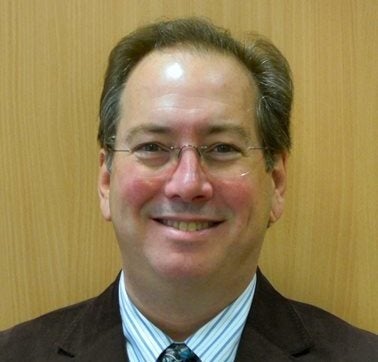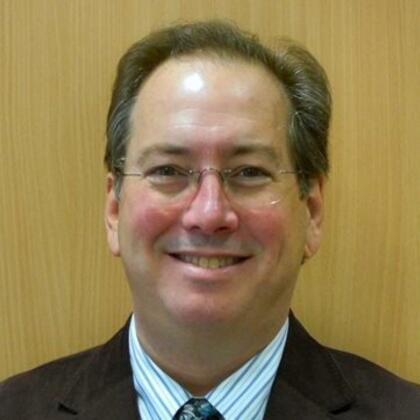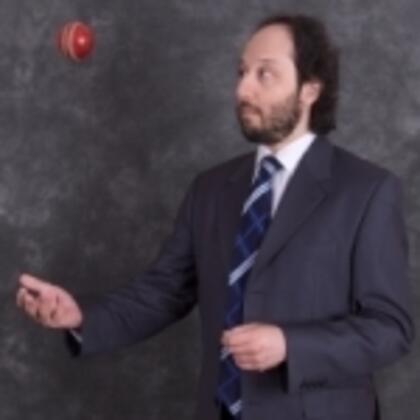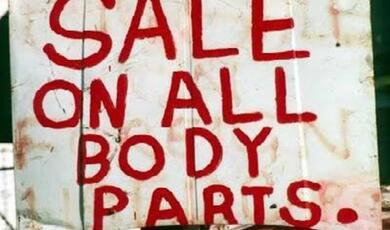The Price of Fish: Making sense of the way the world really works
Share
- Details
- Transcript
- Audio
- Downloads
- Extra Reading
The Price of Fish addresses issues related to 'real' (as opposed to 'transactional') commerce: the complex ways in which people, organisations and societies communicate and deal with each other. The book argues that real commerce drives society, politics, the economy and our future, including the ways complex interactions adapt and change over time. The aim of the book is to make sense of the way the world really works beyond economics. This event is a book launch to mark the publication of The Price of Fish: A New Approach to Wicked Economics and Better Decisions. The lecture will be followed by a drinks reception sponsored by Z/Yen.
Download Transcript
17 November 2011
The Price Of Fish
Professor Michael Mainelli
And Ian Harris
Michael Mainelli
Well, it wouldn’t be a Commerce lecture without a commercial – so tonight the entire lecture is a commercial for a book.
[SLIDE: FISH (& CHIP) STANDS]
Once upon a time there was a man who ran a fish and chip shop. This man ran one of the finest fish and chip shops in the whole of the country. People came from miles around to get tasty fish that was freely covered in thick egg-batter including his secret ingredient (beer) and thick-cut chips with plentiful sauces. In fact, the man was so successful that he could afford to send his son to complete an MBA at a top business school. After graduation, the son came back to work with his dad. “Dad”, he said, “based on the current economic statistics, we’re heading for a recession. You’ve got to stop using all that thick batter, and you dish out ketchup as if it was free.” The father was torn. He’d always been generous to his customers, but his very bright boy didn’t get all that education for nothing. So, reluctantly, dad cut back on the egg-batter and the sauces. His son even convinced him to leave that pricy beer out of the batter. It was just in time, because it turned out his son was right – dad’s business took a real dive.
My father told me that story. I love to embellish it a little, but the underlying truths in that tale are timeless and most prescient in our troubled commercial times. The ability of people’s opinions to affect other people’s opinions has everything to do with the price of fish and chips. We call this a feed-forward system or positive feedback – and it’s a large part of the reason that why markets have fat tails, black swan events and unpredictable prices that diverge from long-term values.
Markets are fascinating. As a former scientist, the one thing that clearly distinguishes social systems from physical systems is intelligence. Intelligence gives commercial systems the ability to predict their own behaviour, but prediction is often wrong and can lead to perverse consequences.
[SLIDE: 30 LECTURES: 1 BOOK]
In a similar vein, when I applied for the post of Mercers’ School Memorial Professor of Commerce here at Gresham College in early 2005 I outlined 15 lectures, around a theme; that “choice” could be the distinguishing characteristic of 21st Century commerce. My three year tenure mysteriously grew to four years and in the end I delivered 28 lectures rather than 15. As I was borrowing heavily from our joint articles throughout those years, it only seemed polite to ask Ian to share my pain on a couple of occasions.
You can, of course, view all those lectures, plus a few more since, at your leisure, so the question we’ll focus on tonight is “why did we bring out a book?” The first thing to note is that the book is not, emphatically not, a collection of lectures. Sure, many of the chapters have similar titles, but we have really worked on the material to make it a book, not a bunch of transcripts. All of my lectures, plus Ian’s, plus a lot of other material, have been ruthlessly rationalised to boil it all down to 328 pages.
[SLIDE: PEEK INSIDE]
One reason Ian and I wrote The Price of Fish is that we care about two big social challenges. The first big social challenge is evident doubt about our own sustainability. Whether it’s climate change, pollution, biodiversity or just the recognition that our own successes have led to population growth that may bring about our downfall, people clearly have more and more concerns about sustainability, the long-term. “Koyaanisqatsi” is a Hopi word for “crazy life”, and also the title of a prophetic, non-verbal 1982 film about the world being out of balance. Humanity has been having more and more koyaanisqatsi moments.
The second big social challenge is evident doubt over the sensibleness of our governments and our economies. The drama of the recent financial crises provides many opportunities for tragic heroes, from hedge funds to crooks to big bank chairmen to politicians to regulators.
[SLIDE: GIANT YELLOW CROAKER]
In 2008 three fishermen, well one was a housewife, landed an 85 kilogram, 1.68 meter, Bahaba fish after a 90 minute fight. This Bahaba fish is colloquially called a giant yellow croaker. They thought they hit the jackpot when they sold the fish to a local fish buyer for HK$20,000, about £1,300. But the fish buyer sold the massive fish, which is highly prized for its swim bladder, for HK$580,000, about £38,000, to a local restaurant. But then the restaurant sold the fish to a mainland Chinese buyer for HK$1,000,000, about £65,000. The three fishermen clearly undervalued their catch. Despite our modernity, we don’t know the price of fish. There’s a dark, sad coda to this story, taking the American slang meaning of “croak”, i.e. “to die”. The giant yellow croaker is critically endangered, nearly extinct, and few survive to maturity given overfishing.
[SLIDE: 2,000,000 YEARS OF COMMERCE AND WE STILL DON’T KNOW THE PRICE OF FISH]
We live in a strange world where, after millennia, we still don’t know the price of fish. If we knew the correct price of fish, one-third of the world’s fisheries wouldn’t have collapsed and we wouldn’t be projecting total global fisheries collapse within the next fifty years while the seas grow increasingly acidic.
So what is “The Price of Fish”? Douglas Adams quips, “You can tune a guitar, but you can’t tuna fish. Unless of course, you play bass.” But can you price a fish? Well, if you believe in our big themes of population growth and resource scarcity, the price has been too low for too long. If you’re a pessimist, you terrifyingly believe the demand will shrink to empty. If you’re an optimist, then you believe the supply and demand might just be half full. If you’re like us, you’ll be an optimist, because pessimism is for better times.
[SLIDE: THE WAY THE WORLD REALLY WORKS]
In The Price of Fish, we try to make sense of the way the world really works. I think we all have a small imp of fear that maybe, just maybe, everything isn’t quite what it seems – a bit like the hollow earth theory or UFOs. Sir Thomas Gresham founded Gresham College, our favourite Tudor Open University, in order to promote the New Learning of Natural Philosophy. What is the New Learning in Commerce today? The physicist David Deutsch remembers the wonder of being told as a small child “that in ancient times it was still possible for a very learned person to know everything that was known.” He points out that a good interpretation of everything was that the very learned person should have the right concepts, explanations and theories to understand and explain the fabric of reality. Deutsch contends that the four key theories for understanding the universe are quantum physics, epistemology, the theory of computation and the theory of evolution. Deutsch prompted an excellent, similar question for us that, in 2005, opened my first lecture in this very hall, what should a learned person know in order to know everything that is known about Commerce?
[SLIDE: GREAT DEBATES]
Ian and I contend that there are some strong parallels in Commerce with Deutsch’s answer for the physical world. While there is as yet no grand unified theory of commerce, and may never be, we can still embark on a journey to explore the tools and ideas that can help society make better decisions about how to live successfully over long periods on a shrinking planet. We would suggest four basic areas of knowledge, or four streams, that we believe need to be included and integrated in order to understand and explain everything that has to do with the price of fish:
choice: understanding how people develop knowledge and biases and how these perceptions affect behaviour. Normative aspects of choice such as fairness, trust and ethics feature in this stream; economics: pondering models of exchange between people and expanding the debate about the role of government and social institutions; systems: in the world of commercial and political economics, systems thinking encourages us to break down complex systems into sub-systems with interlinked information loops of feed-forward and feed-back; evolution: in particular innovation and competitive selection. This stream highlights wicked problems that can’t be solved, just evolved towards incomplete solutions, such as climate change.[SLIDE: REAL COMMERCE ROAD MAP]
But on our way to a sustainable and equitable world we encounter wicked problems. Fritz Zwicky, C West Churchman, and others contributed to the development of the term “wicked problems”, which was introduced in the 1970s by Horst Rittel and Melvin Webber, in a treatise for planning for ill-defined design and planning problems. In this context “wicked” means messy, circular and aggressive. These problems are not the comparatively tame problems most decision theorists study, for example chess, game theory or puzzle solving. The world really is messy, circular and aggressive. According to Laurence J Peter of The Peter Principle fame, “Some problems are so complex that you have to be highly intelligent and well informed just to be undecided about them.” But if you have a unified theory of Real Commerce, you can make sense of how the world really works, so shouldn’t we be using it on “Wicked Problems”? We hope we have shown people how they might approach wicked problems using the four streams. In the book we apply our risk/reward approach to wicked problems and make suggestions such as confidence accounting, using BET%s, options markets for intellectual property, how to measure liquidity or risk-based natural resource insurances.
[SLIDE: DISCOUNTING YOUR PLAICE IN THE COMMUNITY]
Two other words help to explain the integration of knowledge that we seek. They might seem archaic, but we believe they are useful for our purposes and in any case overdue for revival. The first is consilience, which means the unity of knowledge, or, more literally, the leaping together of knowledge. The idea originates in ancient Greece, although the English term is usually attributed to the nineteenth-century thinker William Whewell, who sought to describe a synthesis of inductive reasoning from several disciplines. The humanist biologist Edward O Wilson revived the term in the late twentieth century in his book of the same name. Consilience is the best we can find to describe, in one word, the integration and fusion of knowledge we envisage when we describe the blending of our four streams into real commerce. The second word is catallactics. The Austrian economist Ludwig von Mises used this regularly, as did Friederich von Hayek. In the 1940s, Hayek said that catallactics “was derived from the Greek verb katallatein (or katallasein) which meant, significantly, not only ‘to exchange’ but also ‘to admit into the community’ and ‘to change from enemy into friend.’” Indeed, Hayek even suggests that someone who studies exchange or commerce might be called a catallactist rather than an economist. There is a rich point here: we assert that real commerce, combining the several disciplines that affect the price of fish, is more akin to catallactics, as Hayek defines it, than to economics as normally defined. Communities matter.
[SLIDE: TRADING SARDINES OR EATING SARDINES?]
There is an old financial markets story about how fish trading works. Back in the early 1900’s, on rumours that sardines had disappeared from their traditional waters in Monterey, California, commodity traders started to bid up the price of tinned sardines; a vibrant market ensued and the price of a tin of sardines soared. A classic bubble. This fervent trading went on for some time. One day after some successful trade a buyer chose to treat himself to an expensive snack; he actually opened a tin and ate the sardines. They tasted awful and made him feel ill, so the buyer called the seller and told him the sardines were no good. The seller said, ‘You don’t understand. Those are not eating sardines, they are trading sardines.’ Ultimately, sardines off California were fished out by the 1950s.
First, this story again illustrates our frequent ignorance about the price of fish. Had people really known the price of fish over space and time, they wouldn’t have overfished the North Sea, the Grand Banks of Newfoundland and other fishing stocks including Monterey’s. Second, we need a set of tools, or conceptual frameworks, to help understand what is happening in the supply and demand for fish, the wider politics of fishing communities, and the even wider global market pressures on fishing industries. Economics alone is not sufficient. In fact, as with all systems, it’s not so simple. There are complex interactions among fishermen, sardines and the Pacific Decadal Oscillation. Third, we need a consilience of ideas, alongside economics, in essence theories about how the world really works, to help make better decisions about long-term value. Fourth, community behaviours matter.
[SLIDE: WHAT IS REAL COMMERCE?]
It’s not all negative. One good example of consilience is the success of transferable fish quotas. A regulator sets a species-specific total allowable catch, typically by weight for a given time period. Quota shares are allocated and can be bought, sold and leased. Transferable quotas can be allocated to individuals or communities. Transferable quotas are a good example of consilience about choice, deciding how to help people choose sustainable fishing; economics, using markets to allocate scarce resources; systems, thinking holistically about the environment and society; and evolution, from the science of complex biosystems to the evolving technologies of fishing which make it increasingly efficient. The first country to adopt transferable quotas as a national policy was New Zealand in 1986. Based on success, transferable quotas have spread globally and it is estimated that about 10% of the annual marine harvest is now managed by transferable quotas.
In some work for the UK government we proposed an extension whereby the quota, the right to fish, was distinguished from the activation, actually using the quota. To use a fishing quota triggered the need for an activation certificate, and an activation certificate was only valid with an insurance guarantee that the user would not harm the underlying fishing resource, else the insurer would have to pay to return the resource to its former condition. People could own a transferable fish quota without fishing, e.g. an NGO trying to buy breathing space for fish. People who overfished would be subject to commercial costs for their recklessness. The fishing community was brought to the fore. The consilience of four streams and catallactics.
[SLIDE: MORE QUESTIONS]
French thinker, Claude Lévi-Strauss, once concluded that, « Le savant n’est pas l’homme qui fournit les vraies responses, c’est celui qui pose les vraies questions ». “The learned man is not the man who provides the correct responses, rather he is the man who poses the right questions.” This is an old point that cannot be made often enough – or can it? Hopefully, our story doesn’t end with this book. We continue to ask childlike questions. We continue to suggest ideas based on our risk/reward approach such as index linked carbon or forestry bonds.
In 2007, we began giving a running presentation to our clients and friends on the “Credit Scrunch”, asking the punch question – “when would we know our financial system is working?” The question provoked answers such as “when a 20-year-old can responsibly enter into a financial structure for retirement”, a 100 year question, and “when normal investors can safely fund a 75 to 100 year forestry project.” All questions of feed-forward. We began using the term Long Finance, in recognition of related thinking at Long Now. Established with Gresham College, Long Finance seeks to expand frontiers, change systems, deliver services and build a community.
Long Finance has held numerous events. Guests speakers have included Brian Eno, Professor Avinash Persaud, Neal Stephenson, Stewart Brand, and others. Long Finance has launched four cross-cutting programmes, viz. The Eternal Coin, Meta-Commerce, London Accord and Financial Centre Futures. Long Finance has published several reports, on the Road to Long Finance, the Eternal Coin, the future of mortgages, pensions, forestry, water and biodiversity.
Commercial transactions and money are inextricably linked to trust in the community. Antiseptic, neutral exchanges of currency don’t exist. Each transaction with another person links us just a little bit more to the other person’s societal mores, them to ours, and both of us to the future. Without aspirations, our communities have no future, and our coins no value. This leads to our Long Finance koan – “If you have some trust, I shall give you trust. If you have no trust, I shall take it away from you.” Long Finance seeks to balance trust across space and time.
[SLIDE: PRICE YOUR OWN FISH – IAN HARRIS]
Otto von Bismark famously said that laws are like sausages - better if people are not shown how they are made. We believe that this rule also applies to books. Nevertheless Ian is going to break that rule and explain a little more about how The Price of Fish was made.
Ian Harris
Thank you Michael.
[SLIDE: Mainelli-English Translation Part One]
Michael and I first met 23 years ago. He was a young partner in an accountancy-based management consultancy. I had been hired by some other partners in the firm, unwittingly, as cannon fodder against Michael, when Michael took a week’s leave and went skiing, leaving but one firm instruction – “don’t hire anyone while I am away”. I was entirely unaware of the turf war; all I observed was a speedy and efficient recruitment process – a sign, I thought, of sound procedures and clear, decisive thinking; just what I was looking for.
[SLIDE: Mainelli-English Translation Part TWO]
Of course, Michael was broad-minded enough not to blame me for this mistake and so, after putting me through a baptism of fire on the wickedest client problems he could find in the practice, Michael and I have got on exceedingly well ever since.
But in those early days I soon realised that not everyone could understand Michael, especially if he made oblique and complex statements, such as “don’t hire anyone while I am away”. Perhaps it is the accent. Anyway, I wrote a short translation dictionary which was a great help to new recruits for several years, after its initial outing at an irreverent event.
[SLIDE: Traditional Chinese Fishing, Keeps It Simple]
In some ways I have been translating Michael ever since; in other ways he has been translating me. But now at last, more than 20 years down the line, some other people are going to have to translate for both of us. Our publisher, Nicholas Brealey, and his team, have already placed the translation rights for The Price of Fish into Chinese Traditional, Chinese Simple and Korean. That is quite a feat, prior to a book’s launch in its native language. Indeed, when the third of these coups came through, Michael e-mailed Nick Brealey with the words “how do you do it?” Nick’s unassuming reply was, I paraphrase, “I’m not sure – perhaps the koi carp?”
At this juncture, I should introduce you to the origami dollar koi carp from the cover of the book. The giant facsimile on the table over there belies the minuteness of the genuine origami model pictured on the cover, which is made from a single dollar bill. Tonight, each copy of the book sold will include a set of instructions on how to make an origami dollar koi plus an actual single dollar note with which to try the origami. Please be aware that the origami artist who designed the dollar koi, Won Park, sells his models for $150, so you can actually make money by buying the book tonight. It also illustrates how difficult it is to price fish, even origami fish. But back to my story.
[SLIDE: CLEAN BUISNESS CUISINE]
We first came across Nick in the late 1990s when we were touting the manuscript of our first book, Clean Business Cuisine, (available at all good bookshops, some not-such-good bookshops and a few copies are naturally available for purchase at the reception tonight). In fact, I recently came across my notes from that touting exercise. By Nick’s name I had written, “a long shot but we should go and see him anyway”.
[SLIDE: Intha Fisherman on Inle Lake, Burma]
Nick politely declined Clean Business Cuisine. He didn’t say “go jump in the lake”; he did say, “please come back to me when you want to write a serious book”. In fact Nick came back to us. He turned up at one of Michael’s early Gresham lectures, felt our collars, took us out to dinner, suggested the title “The Price of Fish” and the rest is history.
[SLIDE: Old Billingsgate Market, c1977]
This story illustrates the first of three points I want to emphasise this evening; the notion that real commerce is often about taking a long term view. Nick took a long term view on us. Michael and I have a similar philosophy with our contacts. Many people who form part of the wider Z/Yen community are people with whom we have had little or no transactional commerce - perhaps we never will, but we see that community as an essential part of our real commerce.
[SLIDE: COMMERCE IN THE COMMUNITY]
My second point builds on that idea of community. Community can be defined as a group within which there is sufficient trust that commerce can take place without direct, immediate or obligatory reciprocation. Gresham illustrates this notion of real commerce and community brilliantly. It is impossible fully to express the warmth of feeling Michael and I have towards Gresham College and the Gresham Society. Our joint work on Long Finance and the encouragement we have been given towards The Price of Fish are but two examples.
[SLIDE: Early Morning Fish, Sur, Oman]
My third and final point links back to the four streams of knowledge - choice, economics, systems and evolution – which we believe is key to making better decisions and finding new approaches to tackle intractable issues. Michael and I are both beneficiaries of broad-based education; in Michael’s case at Harvard, London School of Economics and Trinity College Dublin, in my case at Keele University. Sadly, our education system tends to encourage early specialisation these days. Gresham College, of course, is an antidote to such specialism; a genuinely open source of learning across the spectrum of knowledge. It seems to me fitting that our book should be so closely linked with such an institution.
[SLIDE: PRICE YOUR OWN FISH – THANK YOU]
All three points have been a slightly round-about way of saying thank you to lots of people. To Roderick Floud, the Provost of Gresham, Stuart Sutherland (his immediate predecessor), Barbara Anderson and the whole Gresham team, staff, Council and professors. Thanks to Nicholas Brealey our publisher and his team, especially Sally Lansdell the editor who was an absolute joy to work with, or rather, with whom to work. Thanks also to the Z/Yen team. We thanked over 200 people by name in the book (pages 311 and 312), but tonight I shall single out Michael’s wife Elisabeth and my partner Janie who had to put up with just a few foibles while we were completing The Price of Fish. Finally, many thanks to you for coming out this evening to join us; your reward is a drinks reception, sponsored jointly by Z/Yen and Gresham College.
©Professor Michael Mainelli & Ian Harris, Gresham College 2011
This event was on Thu, 17 Nov 2011
Support Gresham
Gresham College has offered an outstanding education to the public free of charge for over 400 years. Today, Gresham plays an important role in fostering a love of learning and a greater understanding of ourselves and the world around us. Your donation will help to widen our reach and to broaden our audience, allowing more people to benefit from a high-quality education from some of the brightest minds.


 Login
Login









